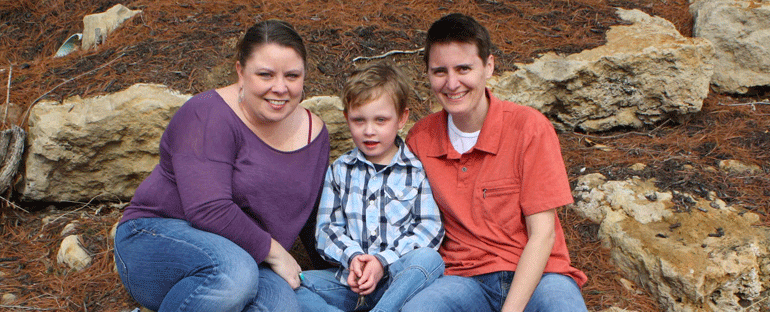By Diane Simon Smith
One of the most prevailing fears for a couple, when their child has a disability, is that their marriage will be affected; perhaps it will likely end. In fact, one of the things couples are told is 80% of them will be divorced because of the child. This is a statistic that has been debunked by Kennedy Krieger Institute.
When couples tell me this statistic, I also tell them it is not my experience with couples who are parents of children with disabilities. However, it is essential to recognize that 50% of couples, in general, divorce, and that statistic can be higher whenever a significant stressor hits the family.
Having a child with a disability is certainly one of those stressors — one that is chronic and one that requires enormous renegotiation of roles and reordering of priorities. Disability in a child challenges our core beliefs about life and its meaning and our dreams for the future. Other stressors and crises do the same — illness, unemployment, natural disaster, or a death in the family — but disability in a child carries with it particular obstacles that couples must navigate.
Also Watch
Diane Simon Smith also presented a webinar as part of our educational series.
Runtime: 1:11:20
But first, let’s look at what the experts say constitutes a “healthy marriage.” In his book, 10 Lessons to Transform Your Marriage, Dr. John Gottman, who has made the scientific study of marriage his life’s work, says, “Happily married couples behave like good friends.” He also says “Happily married couples handle their conflicts in gentle, positive ways.”
Note he does not say that healthy marriages have no conflict, but how they handle that conflict determines their success as a couple.
In their book, Married with Special Needs Children, Laura Marshak and Fran Prezant say that, in a healthy marriage, partners:
- Feel connected through time, affection, and intimacy
- Have good communication and conflict-resolution skills
- Have tolerance and respect for each other’s differences
- Share a fair distribution of power and responsibilities
- Feel like a team and are able to adapt to changing circumstances
- Have a sense of their individuality and also the “we-ness” of the relationship
- Are committed to the marriage
When children enter the relationship, the couple must adapt to their new roles as parents while trying to stay connected as lovers and partners. And when one or more of the children has Fragile X syndrome (FXS), or any other significant disability, there are a whole new set of challenges.

But first, let’s look at what the experts say constitutes a “healthy marriage.” In his book, 10 Lessons to Transform Your Marriage, Dr. John Gottman, who has made the scientific study of marriage his life’s work, says, “Happily married couples behave like good friends.” He also says “Happily married couples handle their conflicts in gentle, positive ways.”
Note he does not say that healthy marriages have no conflict, but how they handle that conflict determines their success as a couple.
In addition to dealing with the individual struggles of parenting a special needs child, we must simultaneously face the following challenges with our partner if the marriage is to thrive:
- We need to connect with our spouse even though it sometimes seems that our child’s issues are all-encompassing.
- We have to try to accept that our partner may have different emotional reactions to the diagnosis of FXS. In our minds, our partner may not be “grieving right.” On the whole, men and women tend to handle their feelings quite differently and that may be challenging to understand.
- We may have to make adjustments to our marital and parental roles in a way that feels fair and doesn’t cause resentment. This may require occasional evaluation and re-adjustment.
- We have to do our best to retain some gestures of romance so that we can see one another as more than “mom and dad.”
- We need to develop a creative vision for the future, despite the challenges of the present moment. Often the thought of the future, which was once the subject of much dreaming together, becomes a scary subject to be avoided. With time, couples can begin to dream again about their shared vision for their futures, even if the future is next month.
- We need to be on the same team. As with any team, each partner has strengths and weaknesses. As a team member, you strive to complement each other and have a strategy for getting back on track when correction is needed.
So, in the midst of the extraordinary demands of parenting, therapies, and making a living, how can we realistically take the necessary steps to make our marriages stronger so that they can “go the distance” and be flexible enough to respond to new and changing demands? Here are some suggestions:
1. Plan Some Time Alone Together
First and foremost, couples need to carve out time together that is theirs alone. Of course, this is easier said than done because of the challenges of time, money, and finding babysitters, especially if there is no family around. This is the purpose of respite care. Use it to have sacred time for yourselves. Do something small like taking a walk or going to an early movie; it doesn’t have to involve great expense.
2. Express Appreciation Sincerely and Often
One thing that couples consistently tell me in therapy is that they often don’t feel appreciated by one another. Acknowledgment for the big things is very important, such as “I really appreciate how you work so hard to support our family.” Or “you do such a wonderful job with the kids.” Yet remember, the little things are important, too. Try stating something very specific like “I really appreciate that you helped me get the kids breakfast this morning.” Try for one acknowledgment each day and try not to follow up with “but ….”
3. Share Laughter and Find Humor in Everyday Things
Children with FXS can be charming and very funny. There is plenty to enjoy about that. Reclaim humor, irony, and laughter. It is a powerful weapon against despair and disconnection.
4. Praise Frequently, Criticize Rarely
Research shows this formula is a predictor of marital longevity. Try for a 3:1 ratio to start.
5. Respect Each Other’s Different Ways of Dealing With Your Child’s Disabilities
Through conversation, listen to your partner’s experience of your child and accept that it may be different from your own.
6. Accept Each Other’s Strengths and Limitations
On a team of any kind, there are individuals who excel at one skill and do not do as well at another. It is important to remember that we each have our own limitations that our partners must accept well.
7. Develop a United Front for Parenting
A difference in parenting styles is a primary source of conflict between partners. Do not undermine each other’s parenting. Take your discussions and disagreements away from the children. If you fear your partner is very inappropriate in their parenting, get help.
Relationships are a challenge and an opportunity for growth, under any circumstances. Good relationships require showing empathy and taking responsibility. Think about what it is like for your partner to be the parent of a child with FXS and what your partner might need from you. Share these ideas with your spouse. Then imagine your relationship as you would like it to be. Decide on the one thing you can do today to move you toward that vision and take that step to make your reality closer to that vision.
about

Diane Simon Smith
Diane Smith is a licensed marriage and family therapist with a private practice in Woodland Hills, California. With over 26 years of experience as a therapist, and as a graduate of Phillips Graduate Institute and the UCLA School of Public Health, she currently works as a private practitioner working with a broad spectrum of clients. Among her areas of expertise are working with parents of children with disabilities, couples’ therapy, treatment of depression and anxiety, eating disorders, and life transitions.

